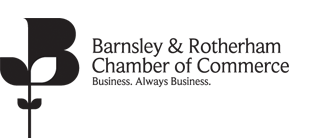
Solid Economic Growth forecast but Industrial Strategy could fail to deliver
Sheffield City Region firms continued to show growth in both domestic and export markets since the New Year and increase investment in plant, people and training, according to a recent economic survey. Yet most remain to be convinced that the Government’s proposed Industrial Strategy can deliver on improving living standards and economic growth by increasing productivity and driving growth across the country.
Over 300 business leaders in the service and manufacturing sectors completed the Sheffield City Region Quarterly Economic Survey for Q1 2017 to report a mainly positive start to the year. They forecast a strong outlook for sales in the next quarter with manufacturing firms foreseeing a substantial increase in both domestic and export markets – particularly across Europe, Asia and the Middle East. Possibly in response to this, both sectors have increased their investment in their plant, staff force and training.
The results of the survey found that businesses are continuing to feel inflationary pressures. Manufacturers reported most pressure from the price of raw materials and service firms felt an increased pressure from other overheads. Compared to last year, a significantly higher proportion of firms anticipate having to raise their own prices over the next three months. However the majority of exporters expected their prices to remain constant.
Both sectors, including 75% of manufacturing firms, increased their employment expectations but were hampered by recruitment difficulties. The categories of greatest difficulty for recruitment remain skilled manual/technical for manufacturing businesses and professional/managerial for service firms.
Businesses identified the most important elements of the Government’s Industrial Strategy as encouraging growth across the whole country, encouraging trade and inward investment, and supporting businesses to start and grow. However nearly half of the businesses polled felt they didn’t know enough about strategy and how it would impact their business.
“In the here and now, many employers are saying – despite macro-economic headwinds such as Brexit – that it is business as usual and experiencing solid growth. However, many firms are facing higher costs which increasingly translates into companies having to raise their own prices and charging customers and consumers more. With inflation already above the Bank of England’s target these pressures looks set to continue during this continuing time of uncertainty and I suspect that in the not too distant future we may see a tapering of business confidence,” says Dan Fell, CEO of Doncaster Chamber.
“Recruitment remains a big issue for many firms and there is a fear that an inability to access the right talent could constrain growth aspirations. That is why its paramount that business and education work together to prepare young people to be work-ready but it also demonstrates why Doncaster must promote itself as an attractive place to live and work to people from further afield.”


Sorry, the comment form is closed at this time.